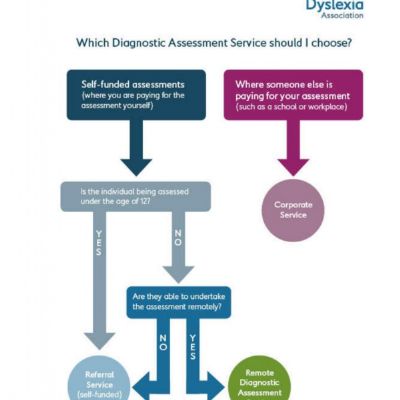Dyslexia
What is dyslexia?
Dyslexia is a common learning difficulty that mainly causes problems with reading, writing and spelling.
It's a specific learning difficulty, which means it causes problems with certain abilities used for learning, such as reading and writing.
Unlike a learning disability, intelligence isn't affected.
It's estimated up to 1 in every 10 people in the UK has some degree of dyslexia.
Dyslexia is a lifelong problem that can present challenges on a daily basis, but support is available to improve reading and writing skills and help those with the problem be successful at school and work.
What are the signs of dyslexia?
Signs of dyslexia usually become apparent when a child starts school and begins to focus more on learning how to read and write.
A person with dyslexia may:
- read and write very slowly
- confuse the order of letters in words
- be confused by letters that look similar and write letters the wrong way round (such as "b" and "d")
- have poor or inconsistent spelling
- understand information when told verbally, but have difficulty with information that's written down
- find it hard to carry out a sequence of directions
- struggle with planning and organisation
But people with dyslexia often have good skills in other areas, such as creative thinking and problem solving.
Information and Support
NHS info - https://www.nhs.uk/conditions/dyslexia/
British Dyslexia - https://www.bdadyslexia.org.uk
DAW Webinar Support for reading
Route to diagnosis
At school we will assess the children. We are currently using the RAPID and COPs computer program this will suggest how like a child is to be dyslexic. unfortunately, in our experience, it also highlights anyone with a learning difference so it is in no way diagnosic. It is useful for us as it can highlight the areas of difficulty the child is experiencing so we can help to support that.
We do not have any school routes to getting a diagnosis. These are currently funded by parents.
The British dyslexia websitestates that we assess from age 7 years onwards to comply with the SASC guidelines (SpLD Assessment Standards Committee), this is the governing body for our specialist teacher assessors. There is quite a lot of reading and writing involved in a full diagnostic assessment and as some children learn to read later than others it would be inappropriate to put them through this lengthy process before age 7.
If your child is 7 you can start the assessment process here
https://www.bdadyslexia.org.uk/services/assessments/diagnostic-assessments

